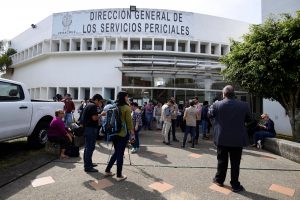
DEAD SEA Jordan (Reuters) – At least 18 people, mainly schoolchildren and teachers, were killed on Thursday in a flash flood near Jordan’s Dead Sea that happened while they were on an outing, rescuers and hospital workers said.
Thirty-four people were rescued in a major operation involving police helicopters and hundreds of army troops, police chief Brigadier General Farid al Sharaa told state television. Some of those rescued were in a serious condition.
Many of those killed were children under 14. A number of families picnicking in the popular destination were also among the dead and injured, rescuers said, without giving a breakdown of numbers.
Hundreds of families and relatives converged on Shounah hospital a few kilometers from the resort area. Relatives sobbed and searched for details about the missing children, a witness said.
King Abdullah canceled a trip to Bahrain to follow the rescue operations, state media said.
Israel sent search-and-rescue helicopters to assist, an Israeli military statement said, adding the team dispatched at Amman’s request was operating on the Jordanian side of the Dead Sea.
Civil defense spokesman Captain Iyad al Omar told Reuters the number of casualties was expected to rise. Rescue workers using flashlights were searching the cliffs near the shore of the Dead Sea where bodies had been found.
A witness said a bus with 37 schoolchildren and seven teachers had been on a trip to the resort area when the raging flood waters swept them into a valley.
(Reporting by Suleiman Al-Khalidi; Editing by Matthew Mpoke Bigg and Alison Williams)

